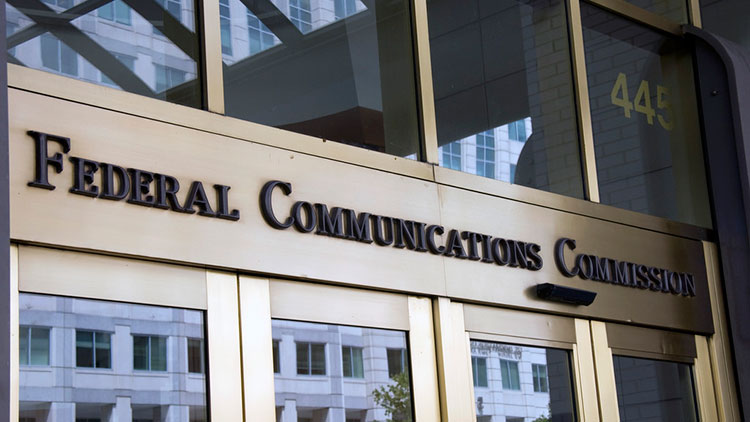EU Has Issues with FCC's BDS Proposal

The smarter way to stay on top of broadcasting and cable industry. Sign up below
You are now subscribed
Your newsletter sign-up was successful
Add the European Union (EU) to those raising red flags over the FCC's planned April 20 vote on a broadband business data services deregulation order proposed by new FCC chairman Ajit Pai.
In a letter to the FCC from EU Ambassador to the David O'Sullivan, who oversees the bilateral relationship between the EU and U.S., said that the FCC's 20-day window between publishing the order and voting on it did not allow for a "full consultation" with EU stakeholders, but said that from what they could glean from the draft, it was a troubling change that the FCC should reconsider.
O'Sullivan stopped short of saying the FCC should delay the vote, but did say that if the FCC proceeded it should provide a transition period.
But he offered plenty of reasons why the EU thought the FCC should rethink the BDS order. He cited the FCC's extensive data collection and the rulemaking proposal based on that and voted under Pai's predecessor, Tom Wheeler, and over Pai's dissent, that the incumbent providers (former Bells) did not face effective competition in most markets.
The Pai order, ostensibly based on that rulemaking proposal, concluded instead that the BDS market was generally competitive, but counted duopolies and "nearby competitors."
The Wheeler conclusion and its more regulatory approach was in line with the EU's position on facilitating wholesale access to BDS services.
The Pai draft, not so much.
The smarter way to stay on top of broadcasting and cable industry. Sign up below
"The European Union is concerned that the current situation and the course of action envisaged in the draft [generally deregulating the rates of incumbents] may threaten the U.S. compliance with WTO regulatory norms...[that] apply to BDS, both to TDM and Ethernet access services," O'Sullivan wrote.
Related: SBA Advocacy Office Seeks BDS Vote Delay
He said with that in mind, the FCC should "re-examine the conclusions of the draft" in light of the evidence and U.S. commitments, and if not at least make "an appropriate time allowance for operators and the market to adapt to the new rules."
“Who knew the FCC would start a trade war with our strongest allies? The EU letter underscores just how radically different and radically dangerous the current FCC’s plan will be if not fully vetted," said INCOMPAS CEO Chip Pickering.
INCOMPAS, which represents competitive carriers, has been pushing the FCC to delay a vote until it does more economic analysis.
The Wheeler proposal, which could have included potentially regulating the rates of cable BDS providers, was based in part on a compromise proposal offered up by INCOMPAS and Verizon.
AT&T has argued that while Verizon was supposed to represent the incumbent exchange carriers (ILECs) in the proposal, it has been getting out of the wireline business and is "almost certainly" now a net purchaser of BDS," so its interests are more aligned with INCOMPAS, which represents competitive carriers, than with AT&T, which is the other major ILEC.
“In their rush to do a $45 billion dollar favor for AT&T, the FCC has not done their due diligence and fails to understand the damaging impact a monopoly market will have on American small businesses, investment and our trading relationships overseas," said Pickering. "The true irony: U.S. companies like AT&T and Verizon could not do business in Europe without the very same competition and access policies the FCC is trying to kill here at home. Broadband lines don’t end at our shores, and neither should competition policy.”
Contributing editor John Eggerton has been an editor and/or writer on media regulation, legislation and policy for over four decades, including covering the FCC, FTC, Congress, the major media trade associations, and the federal courts. In addition to Multichannel News and Broadcasting + Cable, his work has appeared in Radio World, TV Technology, TV Fax, This Week in Consumer Electronics, Variety and the Encyclopedia Britannica.

